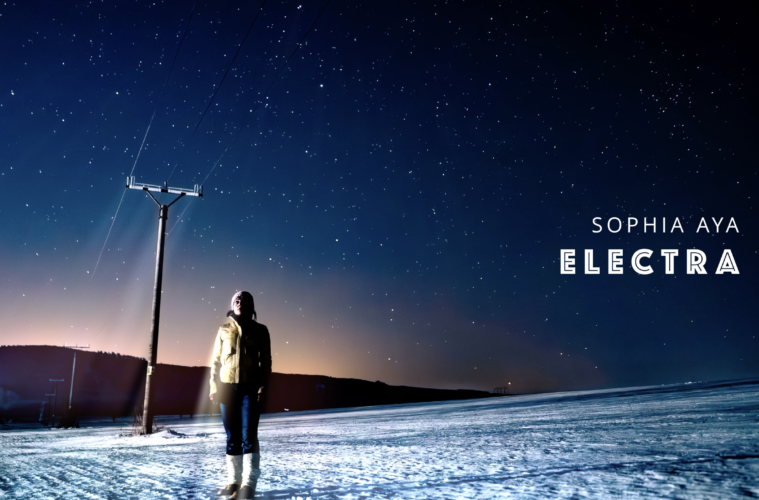“Electra,” the latest release from Sophia Aya, unfolds as a cinematic and introspective exploration of ambient, new age, and experimental sound. Built around a vivid sense of awakened consciousness and immersive sonic detail, the track positions itself within a lineage of contemplative music designed to open pathways toward inner reflection. Drawing deeply from spiritual intention, ritualistic tones, and a refined New Age sensibility, “Electra” constructs an evocative landscape where sound functions as a medium for transcendence.
At the rhythmic level, the composition embraces subtlety and restraint. Instead of relying on percussive patterns or traditional rhythmic grids, “Electra” centers on a slow-forming pulse derived from drone movement, evolving textures, and the internal pacing of breath-like phrasing. The absence of overt beats allows the piece to maintain a weightless quality, encouraging listeners to engage with time in a non-linear way. This minimalistic rhythmic palette aligns with the track’s meditative direction, guiding attention toward micro-changes within the sound field and enhancing the sensation of emerging from a suspended state.
The synth work plays a defining role in shaping the track’s emotional and spatial character. Soft pads expand across the stereo field, constructing an environment that feels both alien and familiar. These synth layers operate similarly to cinematic scoring, fluctuating between warm harmonic resonance and colder spectral tones. Through this interplay, the soundscape evokes the impression of awakening inside a hypersleep pod and finding oneself transported to a serene, otherworldly terrain. The carefully modulated timbres generate a fluid sense of immersion, functioning as a sonic threshold between the physical world and an imagined, contemplative realm.
Within this framework, the atmosphere of “Electra” achieves its strongest impact. Sophia Aya integrates ambient textures with organic field recordings and ancient instrumental resonances, drawing from a personal language of mysticism, healing, and spiritual symbolism. This textural layering creates an expansive space that invites listeners to interpret the environment individually. The track’s evolving ambiance suggests a journey that is not merely external but deeply introspective, encouraging a direct emotional response rather than prescribing a narrative. The composition’s cinematic sensibility is further enhanced by its continuous transformations, shifting from luminous openness to intimate stillness without abrupt transitions.
A central element of the piece is the vocal performance by Kat Kikta, whose presence elevates the track into a realm of sacred sound. Her voice emerges with precision, warmth, and clarity, functioning as both an instrument and a conduit for emotional resonance. Rather than occupying a traditional melodic role, the vocals appear as ethereal gestures—angelic, resonant, and deeply intentional. Their placement within the mix strengthens the track’s association with sound healing practices, offering a sense of grounding amid the expansive synthesis. The vocal timbre contributes significantly to the overall effect, merging seamlessly with the ambient environment while retaining a distinct spiritual focus.
Sophia Aya’s artistic background informs the vision behind “Electra,” integrating influences from her upbringing in the High Tatra mountains, her journey through holistic healing, and her academic studies in performing arts, creative musicianship, and songwriting/production. These elements shape the work’s thematic orientation toward higher states of awareness, plant medicine symbolism, and the transformative capabilities of sound. Through this lens, “Electra” functions as a portal into contemplative space, consistent with the artist’s broader exploration of sacred resonance and transcendental composition.
“Electra” also reflects the evolution of Kat Kikta’s creative persona. While her previous work engaged with lyrical and traditional songwriting, her current expression as Sophia Aya embraces a more cinematic and ambient approach. This shift allows for an exploration of sound as a ritualistic experience, positioning music as a catalyst for awakening and introspection. Her ongoing releases—the Moldavite album and the series of transcendental compositions—extend this vision, emphasizing the connection between intention, voice, and consciousness.
Through its refined synthesis, textural depth, and spiritual orientation, “Electra” invites listeners to embark on an inner journey shaped by atmosphere, resonance, and mindful listening.

